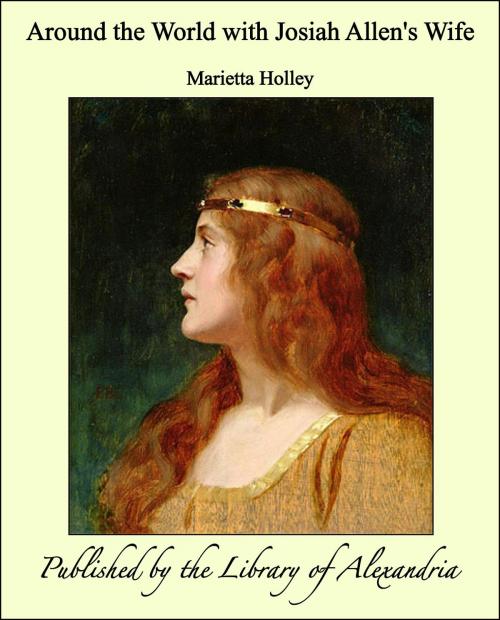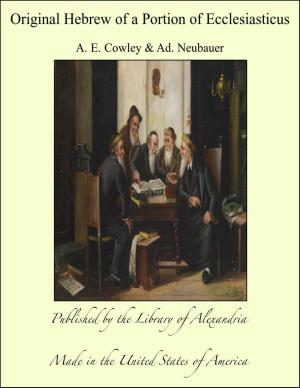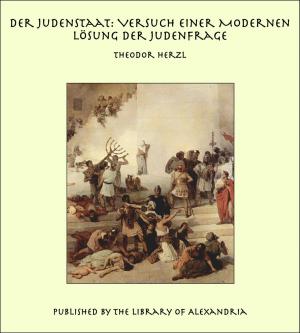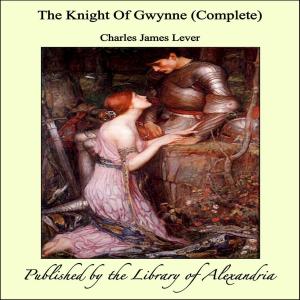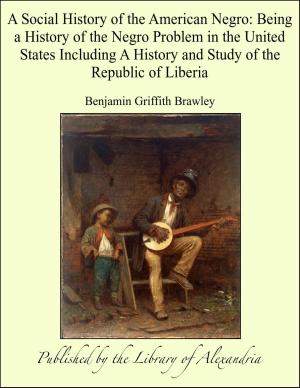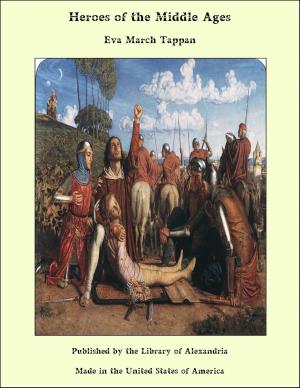Around the World with Josiah Allen's Wife
Nonfiction, Religion & Spirituality, New Age, History, Fiction & Literature| Author: | Marietta Holley | ISBN: | 9781465561756 |
| Publisher: | Library of Alexandria | Publication: | July 29, 2009 |
| Imprint: | Library of Alexandria | Language: | English |
| Author: | Marietta Holley |
| ISBN: | 9781465561756 |
| Publisher: | Library of Alexandria |
| Publication: | July 29, 2009 |
| Imprint: | Library of Alexandria |
| Language: | English |
Our son, Thomas Jefferson, and his wife, Maggie, have been wadin’ through a sea of trouble. He down with inflamatory rumatiz so a move or jar of any kind, a fly walkin’ over the bedclothes, would most drive him crazy; and she with nervious prostration, brought on I spoze by nussin’ her pardner and her youngest boy, Thomas Josiah (called Tommy), through the measles, that had left him that spindlin’ and weak-lunged that the doctor said the only thing that could tone up his system and heal his lungs and save his life would be a long sea voyage. He had got to be got away from the cold fall blasts of Jonesville to once. Oh! how I felt when I heard that ultimatum and realized his danger, for Tommy wuz one of my favorites. Grandparents ort not to have favorites, but I spoze they will as long as the world turns on its old axletrys. He looks as Thomas J. did when he wuz his age and I married his pa and took the child to my heart, and got his image printed there so it won’t never rub off through time or eternity. Tommy is like his pa and he hain’t like him; he has his pa’s old ways of truthfulness and honesty, and deepwhy good land! there hain’t no tellin’ how deep that child is. He has got big gray-blue eyes, with long dark lashes that kinder veil his eyes when he’s thinkin’; his hair is kinder dark, too, about the color his pa’s wuz, and waves and crinkles some, and in the crinkles it seems as if there wuz some gold wove into the brown. He has got a sweet mouth, and one that knows how to stay shet too; he hain’t much of a talker, only to himself; he’ll set and play and talk to himself for hours and hours, and though he’s affectionate, he’s a independent child; if he wants to know anything the worst kind he will set and wonder about it (he calls it wonner). He will say to himself, “I wonner what that means.” And sometimes he will talk to Carabi about itthat is a child of his imagination, a invisible playmate he has always had playin’ with him, talkin’ to him, and I spoze imaginin’ that Carabi replies. I have asked him sometimes, “Who is Carabi, I hearn you talkin’ to out in the yard? Where duz he come from! How duz he look?” He always acts shy about tellin’, but if pressed hard he will say, “He looks like Carabi, and he comes from right here,” kinder sweepin’ his arms round. But he talks with him by the hour, and I declare it has made me feel fairly pokerish to hear him. But knowin’ what strange avenoos open on every side into the mysterious atmosphere about us, the strange ether world that bounds us on every pint of the compass, and not knowin’ exactly what natives walk them avenoos, I hain’t dasted to poke too much fun at him, and ’tennyrate I spozed if Tommy went a long sea-voyage Carabi would have to go too. But who wuz goin’ with Tommy? Thomas J. had got independent rich, and Maggie has come into a large property; they had means enough, but who wuz to go with him? I felt the mantilly of responsibility fallin’ on me before it fell, and I groaned in speritcould I, could I agin tempt the weariness and danger of a long trip abroad, and alone at that? For I tackled Josiah on the subject before Thomas J. importuned me, only with his eyes, sad and beseechin’ and eloquent. And Josiah planted himself firm as a rock on his refusal. Never, never would he stir one step on a long sea-voyage, no indeed! he had had enough of water to last him through his life, he never should set foot on any water deeper than the creek, and that wuzn’t over his pumps. “But I cannot see the child die before my eyes, Josiah, and feel that I might have saved him, and yet am I to part with the pardner of my youth and middle age? Am I to leave you, Josiah
Our son, Thomas Jefferson, and his wife, Maggie, have been wadin’ through a sea of trouble. He down with inflamatory rumatiz so a move or jar of any kind, a fly walkin’ over the bedclothes, would most drive him crazy; and she with nervious prostration, brought on I spoze by nussin’ her pardner and her youngest boy, Thomas Josiah (called Tommy), through the measles, that had left him that spindlin’ and weak-lunged that the doctor said the only thing that could tone up his system and heal his lungs and save his life would be a long sea voyage. He had got to be got away from the cold fall blasts of Jonesville to once. Oh! how I felt when I heard that ultimatum and realized his danger, for Tommy wuz one of my favorites. Grandparents ort not to have favorites, but I spoze they will as long as the world turns on its old axletrys. He looks as Thomas J. did when he wuz his age and I married his pa and took the child to my heart, and got his image printed there so it won’t never rub off through time or eternity. Tommy is like his pa and he hain’t like him; he has his pa’s old ways of truthfulness and honesty, and deepwhy good land! there hain’t no tellin’ how deep that child is. He has got big gray-blue eyes, with long dark lashes that kinder veil his eyes when he’s thinkin’; his hair is kinder dark, too, about the color his pa’s wuz, and waves and crinkles some, and in the crinkles it seems as if there wuz some gold wove into the brown. He has got a sweet mouth, and one that knows how to stay shet too; he hain’t much of a talker, only to himself; he’ll set and play and talk to himself for hours and hours, and though he’s affectionate, he’s a independent child; if he wants to know anything the worst kind he will set and wonder about it (he calls it wonner). He will say to himself, “I wonner what that means.” And sometimes he will talk to Carabi about itthat is a child of his imagination, a invisible playmate he has always had playin’ with him, talkin’ to him, and I spoze imaginin’ that Carabi replies. I have asked him sometimes, “Who is Carabi, I hearn you talkin’ to out in the yard? Where duz he come from! How duz he look?” He always acts shy about tellin’, but if pressed hard he will say, “He looks like Carabi, and he comes from right here,” kinder sweepin’ his arms round. But he talks with him by the hour, and I declare it has made me feel fairly pokerish to hear him. But knowin’ what strange avenoos open on every side into the mysterious atmosphere about us, the strange ether world that bounds us on every pint of the compass, and not knowin’ exactly what natives walk them avenoos, I hain’t dasted to poke too much fun at him, and ’tennyrate I spozed if Tommy went a long sea-voyage Carabi would have to go too. But who wuz goin’ with Tommy? Thomas J. had got independent rich, and Maggie has come into a large property; they had means enough, but who wuz to go with him? I felt the mantilly of responsibility fallin’ on me before it fell, and I groaned in speritcould I, could I agin tempt the weariness and danger of a long trip abroad, and alone at that? For I tackled Josiah on the subject before Thomas J. importuned me, only with his eyes, sad and beseechin’ and eloquent. And Josiah planted himself firm as a rock on his refusal. Never, never would he stir one step on a long sea-voyage, no indeed! he had had enough of water to last him through his life, he never should set foot on any water deeper than the creek, and that wuzn’t over his pumps. “But I cannot see the child die before my eyes, Josiah, and feel that I might have saved him, and yet am I to part with the pardner of my youth and middle age? Am I to leave you, Josiah
